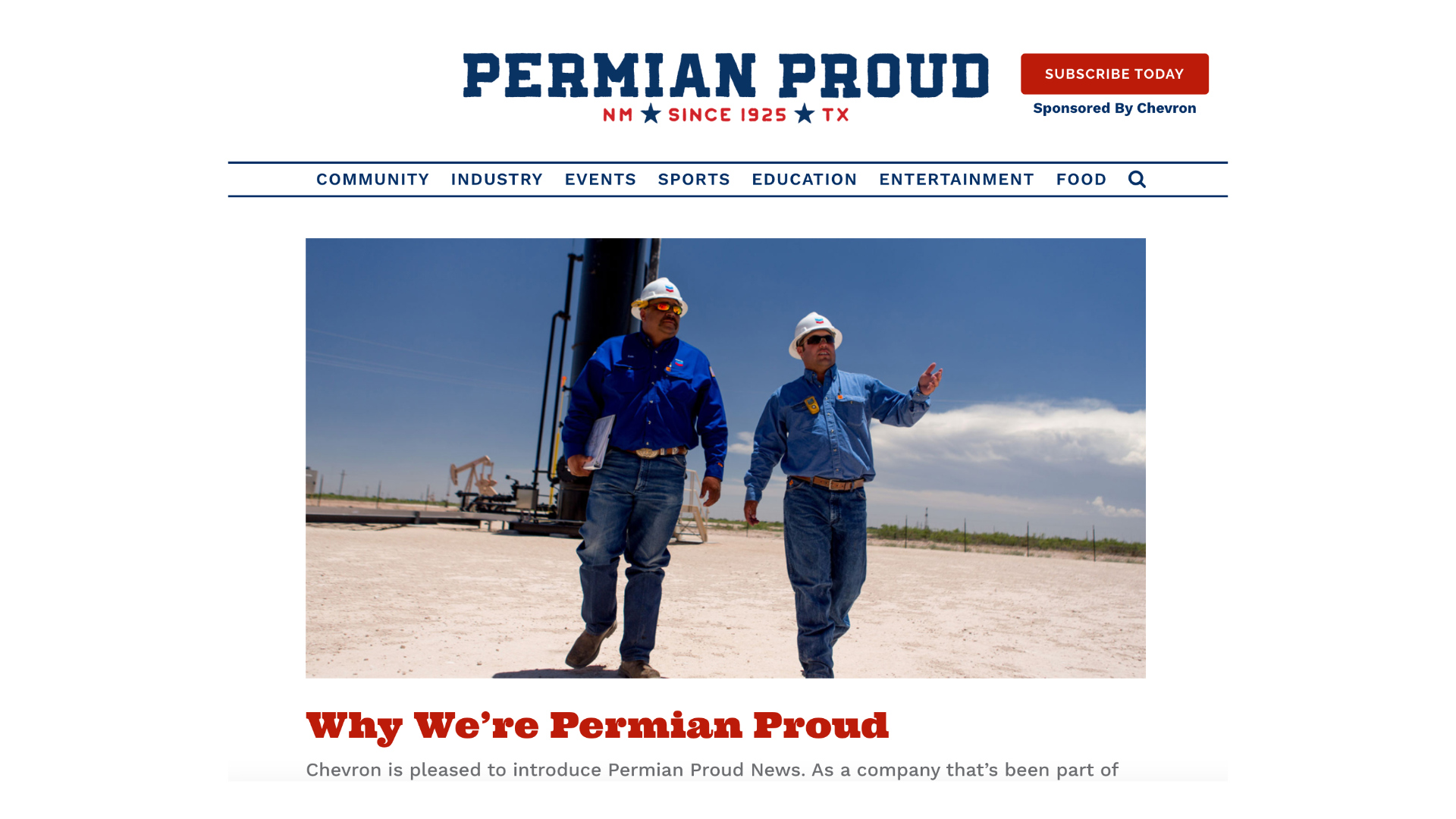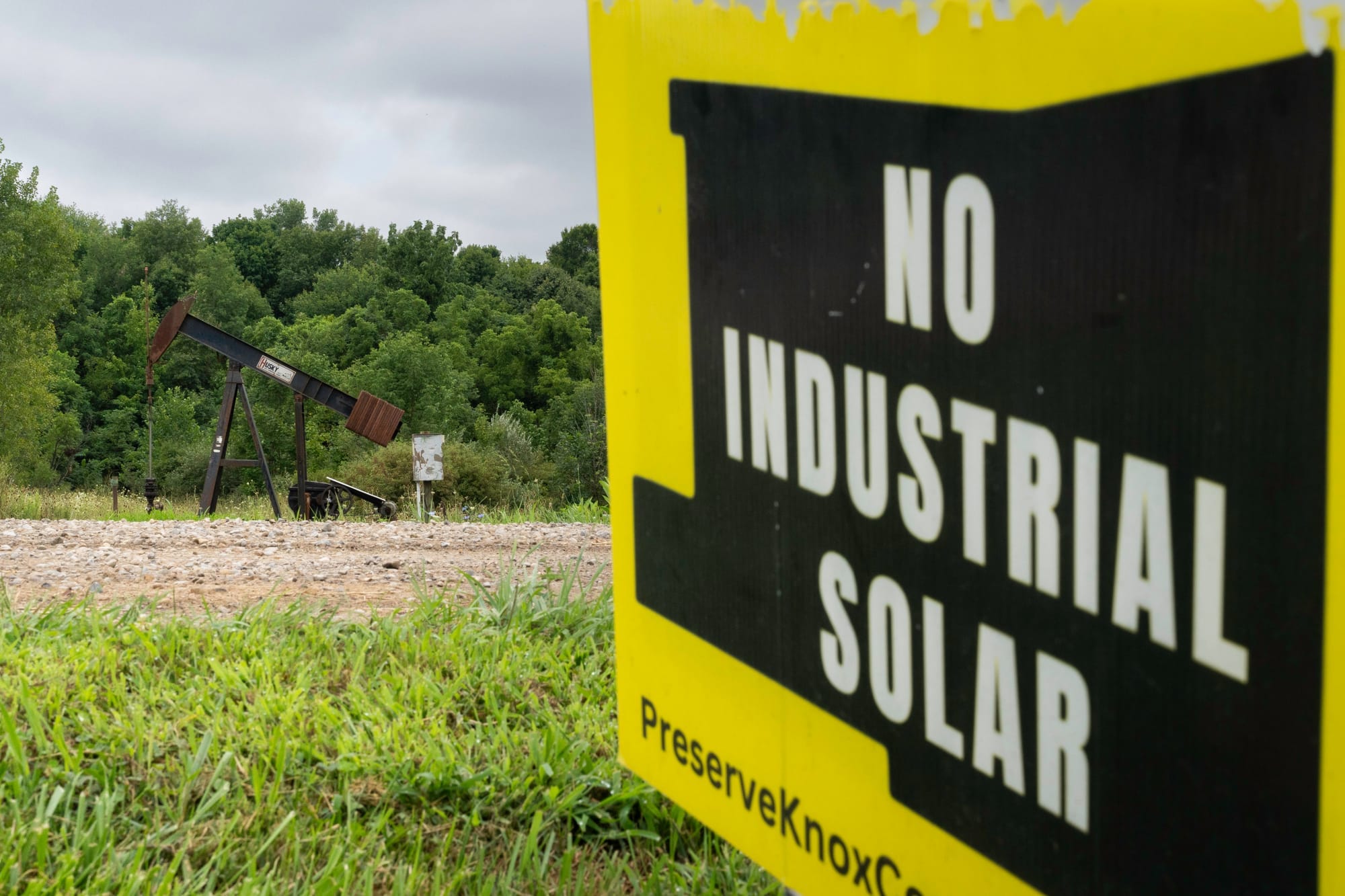Floodlight’s collaborative coverage of media manipulation wins National Press Club award

The National Press Club announced Wednesday that Floodlight and several news partners have won the Arthur E. Rowse Award for Examining the News Media for our investigation into media manipulation in America.
In 2024, Floodlight, along with media partners, exposed how corporations and special interests were manipulating public opinion by creating “news” outlets to push their hidden anti-renewable, pro-fossil fuel agendas — in two cases even taking over legacy local news outlets to do it.
The National Press Club Journalism Awards judges praised the coverage “for its high-quality reporting, its narrative strength, and its ability to surface an urgent yet little-known issue at the intersection of media, power and public trust.”
The entry included five stories. Floodlight reporter Miranda Green reported how Alabama Power was running its own “news” service, the Alabama News Center, which provides corporate-generated “stories” to news outlets. Our investigation found that the utility’s charitable arm also took over the legacy Black newspaper, The Birmingham Times. We showed how neither outlet reports critically about Alabama’s powerful energy monopoly in a state with the nation’s highest electric bills — and a dearth of cheap solar and wind energy.
Green, along with NPR media reporter David Folkenflik and students from the University of California Berkeley, showed how the Chevron-owned Richmond Standard was operating as a community “news” outlet for Richmond, Calif., while serving as a powerful corporate mouthpiece for the oil giant. The reporting team found the Standard was striking for what it covered — always positive news about Chevron and the oil industry — and what it ignored, notably a massive oil spill and repeat environmental law violations at its Richmond refinery.

Floodlight freelance reporter Felicia Alvarez followed that story with a piece showing how Chevron was using the same playbook in the Permian Basin in Texas and New Mexico, a news desert where locally produced, real news is hard to come by. A search of the two-year-old Permian Proud website revealed just two stories mentioning climate change, despite the industry’s leading role in creating the climate crisis.
Floodlight’s Green partnered with ProPublica reporter Jennifer Smith Richards and Tow Center for Digital Journalism researcher Priyanjana Bengani to expose how fossil fuel interests had created a hidden but powerful echo chamber aimed at blocking solar power in Knox County, Ohio. The strategy included a faux grassroots group, a vocal community leader with ties to the methane industry and a takeover of the legacy local newspaper, the Mount Vernon News, which became a megaphone for the stealth anti-solar campaign.

Green, in collaboration with the North Dakota News Cooperative correspondent Michael Standaert, also exposed how the same media outlet that bought the Mount Vernon paper was behind a “weird” newspaper aimed at swaying public opinion ahead of the trial against Greenpeace for its role in the contentious Dakota Access Pipeline protests. We found the paper was bankrolled by fossil fuel interests. A county jury later ordered Greenpeace to pay the pipeline company $660 million — twice the requested amount.
These stories had impact. After we asked about the lack of transparency on some of Chevron’s “news” outlets, the oil giant placed its logo on the top of its Ecuadorian sites. The editor of the Birmingham Times promised to devote more coverage to energy issues affecting its readers. Greenpeace cited our story in motions seeking a change of venue and disclosure of the newspaper’s financing. Both motions argued the fake newspaper had tainted the jury pool.
Our series revealed how powerful interests used the veneer of journalism to subject communities to stealth anti-clean energy messaging. Floodlight’s stories showed the secret hand of special interests at work in “pink slime” websites, co-opted mainstream news outlets and corporate organs purporting to provide community news.
The award will be given out Aug. 27 in Washington, D.C.
Green and Floodlight’s collaborative coverage of media manipulation in 2024 have also been honored by the Los Angeles Press Club and the National Press Foundation.
Floodlight is a nonprofit newsroom that investigates the powers stalling climate action.
